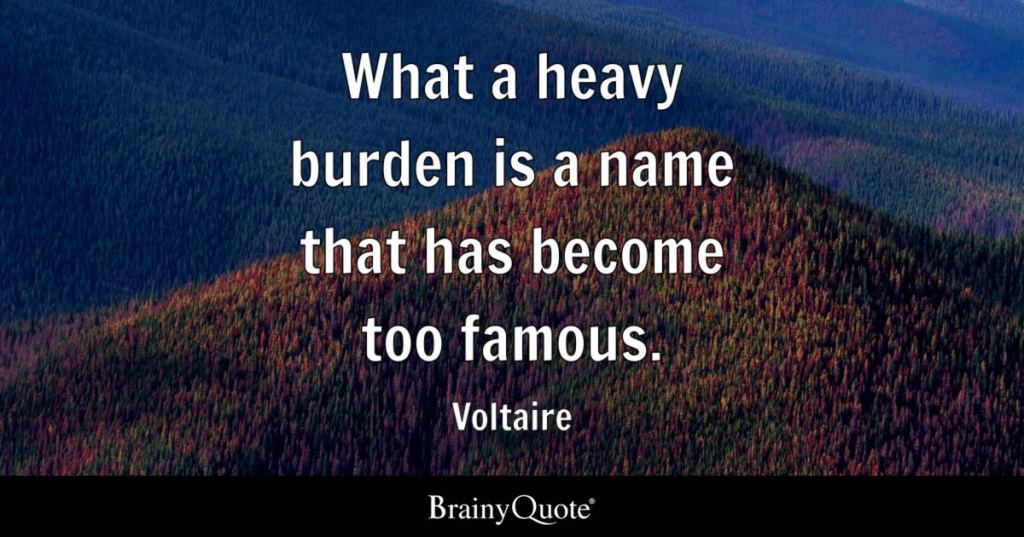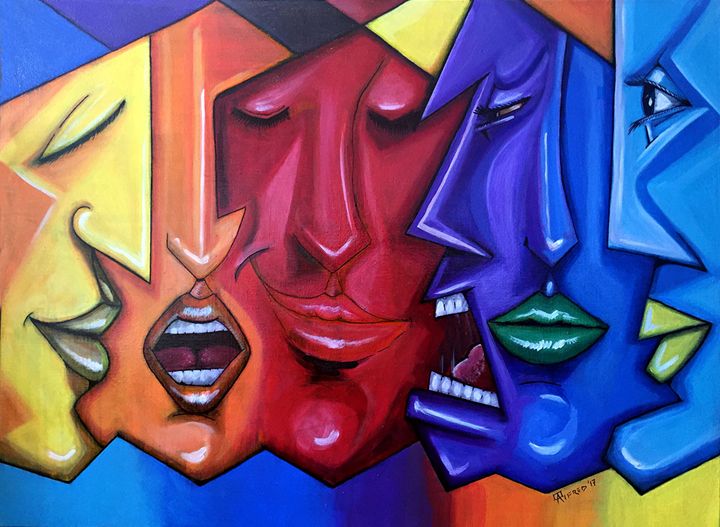Have you ever thought of changing your name because it doesn’t resonate with your intrinsic nature? Perhaps you prefer a diminutive form of your birth name or you are one of the lucky ones who earned yourselves a suitable nickname attesting only to your finest qualities, for as we know many nicknames can be horridly cruel, making one the brunt of ridicule, and while some nicknames may be cute, we simply outgrow them.
What’s Behind a Name?
What’s behind a name? Sometimes the answer is everything. N. Scott Momaday, in his poetic account of the ways in which names and landscapes shape our reality, The Names: A Memoir, argues that the meaning of who we are is contained or hidden within our names. He believes that names can not only be revealing, but they may also conceal our identity or the identity of a place.
Perhaps this has never been truer than it is in our day and age, on social networks. Hell, they even have online profile name generators to meet the increasing needs of millions of virtual alter egos who ironically use false names, not necessarily to hide their identity, but in order to stand out and be noticed in the matrix.
There is a lot more to a name than meets the eye. Names are loaded with information, they often indicate gender, birthplace, ethnicity, and religion. In certain cultures, names refer to a person’s position within the family or the community. In Western culture, naming follows fashions and trends with yearly top 100 lists of names. There are names that belong to a distant past and those names that carry a negative connotation due to their origins and meaning. For example, the name Claudia means lame, Calvin is Latin for bald or hairless, Mara means bitter, Cameron means crooked nose, and Nemo means nobody.
Our names are like labels or captions that enable people to make quick assertions, and assumptions about us. There are numerous reasons one might want to change their name; to create a new identity, avoid discrimination, to not stand out and more easily fit in a new culture, or because they do not want to be found.

Actors, change their names because it’s better for business and authors might do so for anonymity. Some names are a burden, and others are intimidating, whereas some names are forbidden in certain countries. One could say that names have a certain power over our lives.
What’s in a name after all? Is it the sound, the way the letters flow seamlessly together, or is it what’s behind the name that matters? In an Interview, Alfred Hitchcock repeated the word Leprosy in such a manner as to convey to us that the word Leprosy, in itself, has a nice ring to it, and he argued that if we were to disassociate it from the disease it would be a lovely name for a girl. Personally, I wouldn’t risk it.
What’s In A Surname?

Surnames are a key to people’s identities since they refer to origin stories and historic patterns of migration. Surnames are a direct link to a person’s ancestry and heritage. In some countries, both parents’ surnames are passed on, but generally speaking the patriarchal custom of using the father’s surname still prevails.
Renouncing a surname means severing the bonds of ancestry and a portion of family history, (in some cases wealth), that might stretch back centuries. Elite families remain elite for centuries. “Names retain their status (low or high) for 500 years or more in some cases.” This implies that social status associated with a family name is passed on through generations.
A study tracking 634 rare surnames, such as Pepys, Bigge, and Nottidge, in the UK, has unveiled how wealth has been handed down through the generations“. The study concluded that the law of inheritance rules. They calculated that it would require 300 years before the descendants of very wealthy 19th-century families end up being of average wealth. In other words, if your family name were Rothchild, it would have its advantages to keep it, for both yourself and your offspring.
Your Name Could Be Your Life Saver
Many migrants change their names in order to avoid prejudice and not be discriminated against.
Xian Zhao and Monica Biernat conducted three studies to test how anglicizing ethnic names affect intergroup decision-making in hypothetical life-and-death situations. It concluded that a name can shape the way a person is treated and their prospects in life.
“Study 1 showed that White American participants were equally likely to help White and Asian immigrants with Anglicized names but were less likely to help Asian immigrants with original ethnic names. The same effect emerged in Study 2 but only among male White American participants. In Study 3, White pro-assimilationists were more likely to help White than Arab immigrants (with either Anglicized or original ethnic names), but White pro-multiculturalists were more likely to help Arab immigrants with Anglicized names than White targets. “
Names are like passwords or keys that open the way for opportunities or embarrassments, and at times they simply point to the remains of our past selves.
The Power of Names and Naming
The Ancient Egyptians believed that knowing something’s real name gave them great power. An important part of the Judeo-Christian creation story lies in the power of naming and has ties to authority in the scriptures. The bible recounts the story of when God entrusted and empowered Adam with the task of giving names to everything put under his care. Names were considered labels and symbols, and more importantly, they were the key to the very nature and spirit of the being.
Behind everyone’s name, there is a story, there’s history, some carry a legacy, and others are imbued with religious or spiritual connotations. Take for example the numerous Hebrew names that translate into a gift from God, such as Ivan, Jani, Jannes, Jathniel, Jonathan, Jukka, and so on. There are many instances in the bible where the child is named after a prophecy.
In India, it is quite common for people, particularly Hindus, to choose their newborn’s names on the basis of their astrological chart, provided by an astrologer, who determines the sound a name should begin with.
Can you imagine not being able to freely choose your child’s name? In Denmark, parents are required to pick a name from a pre-approved list of 7,000 names, 4,000 of which are girl names and 3000 for boys. These stringent rules were put into place to protect innocent children from the burden of ridiculous or silly names. There are several countries that regulate name-giving, however, Denmark is by far the strictest.
The Indigenous people of North America use names derived from nature that convey the person’s character or temperament, often referring to an animal in connection to desirable characteristics or particular traits. Some will be given more than one name during their lifetime, these names stand for significant character changes. Legal names are given, whereas Indigenous names are earned.
The Torah is filled with characters whose names change throughout. In fact, Judaic tradition supports the idea that one is not destined to live with the names given to them by others, and teaches that through their own choices and actions, each of them can name and rename themselves.
I was given one name at birth, chosen not by my parents but by a stranger who helped with my delivery into this world. Throughout my life and travels my name has been changed and adapted by friends and family alike, in Italian, English, and French. With so many variations to choose from I still haven’t decided whether it’s a good thing or not. As a writer, I’ve often considered the advantages of shortening and anglicizing my name, which translates perfectly to Maggie McGregor, then again my mouthful of a name is exotic and unique by comparison, which resonates with an important part of me, so I think I’ll keep it.
In her poem, Each Of Us Has A Name, the spiritual poet Zelda perfectly captures the essence of what is in a name. (Translation by Marcia Lee Falk)
Each of us has a name given by God and given by our parents Each of us has a name given by our stature and our smile and given by what we wear Each of us has a name given by the mountains and given by our walls Each of us has a name given by the stars and given by our neighbors Each of us has a name given by our sins and given by our longing Each of us has a name given by our enemies and given by our love Each of us has a name given by our celebrations and given by our work Each of us has a name given by the seasons and given by our blindness Each of us has a name given by the sea and given by our death.
Cover Image Art by Alfred Hernandez

You have an exceeeeelent name xoxo
LikeLiked by 1 person